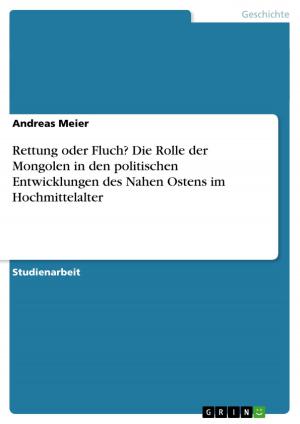Post Traumatic Stress Disorder (PTSD). Theoretical Findings and Treatment Models
Nonfiction, Health & Well Being, Psychology, Pathological Psychology| Author: | Raja Sree R Subramaniam | ISBN: | 9783668120358 |
| Publisher: | GRIN Verlag | Publication: | January 5, 2016 |
| Imprint: | GRIN Verlag | Language: | English |
| Author: | Raja Sree R Subramaniam |
| ISBN: | 9783668120358 |
| Publisher: | GRIN Verlag |
| Publication: | January 5, 2016 |
| Imprint: | GRIN Verlag |
| Language: | English |
Seminar paper from the year 2015 in the subject Psychology - Consulting, Therapy, grade: 61, University of Derby, course: Psychology, language: English, abstract: The Diagnostic and Statistical Manual of Mental Disorders estimated 9-11 % of the general population experience traumatic distress and about half of the people who experienced trauma continue to develop Posttraumatic stress disorder (PTSD). PTSD is an anxiety disorder for which cognitive-behavioural therapy (CBT) is employed to treat or prevent maladaptive behaviour, beliefs and thought processes. According to the diagnostic criteria for PTSD, individuals exposed to trauma experience three distinct types of persistent post-trauma symptoms. The arousal symptom clusters describe re-experiencing traumatic moments, nightmares, flashbacks and sleep-disturbances. The second clusters of symptoms describe physiological responses such as helplessness, anger outbursts, concentration problems, hyper vigilance and exaggerated startle responses. The third cluster of symptoms describes avoidance and emotional numbing symptoms that leads to avoidance of people, trauma reminders, emotional dissociation and trouble recalling trauma events. The persistent PTSD symptoms detrimentally affect mental health, social behaviour and occupational functioning. The issue whether PTSD symptoms own their existence to biological and learning or whether they are entirely cognitively determined has been the subject of much debate. Each approach provides evidence supporting fear activation and problems in emotion regulation leading to various symptoms of PTSD but these findings do not settle the issue for the maintenance of persistent symptoms of PTSD. In fact, it is posited that individual differences in the appraisal of trauma events and emotion regulation strategies determine the maintenance of the PTSD symptoms. Hence, the existing cognitive-behaviour therapy for PTSD was conceptualised to provide clinicians and therapists with an evidence-based framework that addresses individualised case formulation and treatment needs. The purpose of this essay is to discuss and evaluate the theoretical findings and treatment models, which contributed to the understanding of persistent symptoms of PTSD.
Seminar paper from the year 2015 in the subject Psychology - Consulting, Therapy, grade: 61, University of Derby, course: Psychology, language: English, abstract: The Diagnostic and Statistical Manual of Mental Disorders estimated 9-11 % of the general population experience traumatic distress and about half of the people who experienced trauma continue to develop Posttraumatic stress disorder (PTSD). PTSD is an anxiety disorder for which cognitive-behavioural therapy (CBT) is employed to treat or prevent maladaptive behaviour, beliefs and thought processes. According to the diagnostic criteria for PTSD, individuals exposed to trauma experience three distinct types of persistent post-trauma symptoms. The arousal symptom clusters describe re-experiencing traumatic moments, nightmares, flashbacks and sleep-disturbances. The second clusters of symptoms describe physiological responses such as helplessness, anger outbursts, concentration problems, hyper vigilance and exaggerated startle responses. The third cluster of symptoms describes avoidance and emotional numbing symptoms that leads to avoidance of people, trauma reminders, emotional dissociation and trouble recalling trauma events. The persistent PTSD symptoms detrimentally affect mental health, social behaviour and occupational functioning. The issue whether PTSD symptoms own their existence to biological and learning or whether they are entirely cognitively determined has been the subject of much debate. Each approach provides evidence supporting fear activation and problems in emotion regulation leading to various symptoms of PTSD but these findings do not settle the issue for the maintenance of persistent symptoms of PTSD. In fact, it is posited that individual differences in the appraisal of trauma events and emotion regulation strategies determine the maintenance of the PTSD symptoms. Hence, the existing cognitive-behaviour therapy for PTSD was conceptualised to provide clinicians and therapists with an evidence-based framework that addresses individualised case formulation and treatment needs. The purpose of this essay is to discuss and evaluate the theoretical findings and treatment models, which contributed to the understanding of persistent symptoms of PTSD.















